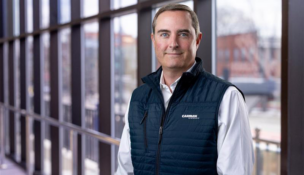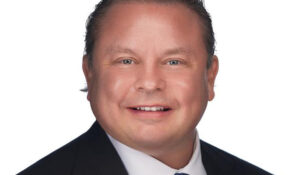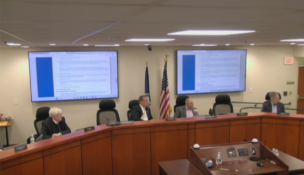Hampden-Sydney College receives three donations totaling $12.25M
Donations support Pauley Science Center under construction, science scholarship and research
Hampden-Sydney College receives three donations totaling $12.25M
Donations support Pauley Science Center under construction, science scholarship and research
Hampden-Sydney College has received donations of $11 million, $1 million and $250,000 in support of its science programs and science center under construction, the college announced Thursday.
“While the college has emphasized the sciences since its founding, the need for a state-of-the-art science facility and for all Hampden-Sydney students to graduate with a high degree of scientific literacy is more important than ever,” Hampden-Sydney College President Larry Stimpert said in a statement. “These philanthropic investments in the college’s future will help secure Hampden-Sydney’s place among the country’s finest liberal arts colleges and universities.”
The estate of the late Dr. W. Glenn Hurt gifted $11 million to the college to establish a science scholarship with summer research opportunities for its recipients. Hurt died in February at age 82. The college will use this donation to establish the Hurt Science Scholars Program, which will provide an annual scholarship of approximately $10,000 per recipient. Each recipient will also have funding to engage in research for two summers.
“Few Hampden-Sydney alumni have been as devoted in their commitment to the college as Dr. Hurt,” Stimpert said in a statement. “He quietly and anonymously supported Hampden-Sydney during his life and now leaves an enduring legacy that will create opportunities for generations of scientists to come. We will always be grateful for his humble and selfless dedication.”
Hurt’s most recent anonymous gifts included $1 million to establish the Hinton Baxter Overcash Immersive Biology Laboratory in the Pauley Science Center and $2.45 million to augment an existing endowed scholarship. In 2013, he established an endowed fund with the Community Foundation for a greater Richmond to ensure need-based annual scholarship support for Hampden-Sydney.
Hampden-Sydney College alumnus and trustee Trevor Boyce is contributing $1 million to the construction of the Pauley Science Center. Boyce is the chairman of Microbac Laboratories Inc. He served as a trustee member of the college’s science task force to assess the needs of its science program. Boyce also has served as chairman of the American Council of Independent Laboratories.
“My Hampden-Sydney education has benefited me every day of my career,” Boyce said in a statement. “The Pauley Science Center will build on a tradition of science excellence and transform the academic experience at the college. I’m proud to support these crucial efforts to ensure a first-rate science education for every single Hampden-Sydney student.”
The Robert Leroy Atwell and Lucy Williams Atwell Foundation, which was named to honor Roy Atwell’s parents, dedicated $250,000 to support research opportunities for science students.
“Roy Atwell truly admired Hampden-Sydney’s liberal arts curriculum and the college’s commitment to providing students with an exceptional education. We’re grateful for the opportunity to continue his legacy of support for Hampden-Sydney and hope that this gift will enrich the student research experience,” alumnus Will Seymour, a trustee of the foundation, said in a statement.
The roughly 73,000-square foot Pauley Science Center will have classrooms, laboratories, equipment and interactive spaces. It has an expected completion in spring 2022, with the first classes in the facility to be held the following fall. The center is named for the late Stanley F. Pauley, whose $30 million donation in 2019 launched the project, the estimated total cost of which is more than $40 million.
“In announcing Mr. Pauley’s transformational gift in 2019, we said that it would begin the next chapter of a long history of successful outcomes for our students,” Stimpert said in a statement. “The philanthropy of our dedicated supporters ensures that the college will continue writing that chapter, building on our momentum and offering an unrivaled undergraduate science education for generations of young men to come.”
s


















